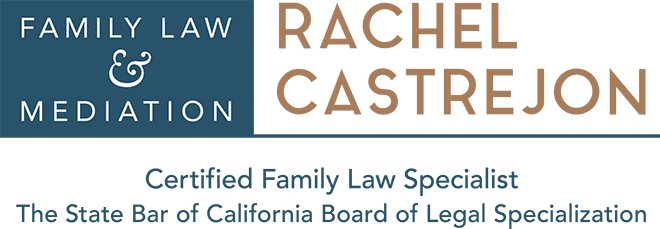Confused about Divorce Options?

Are you or your spouse thinking about divorce, but have no idea how to go about it? Here are some divorce options.
1. Mediation
You and your spouse can work with a mediator to help you reach an agreement on any issues in the case (i.e. child custody, child support, spousal support, property division etc.). A mediator can also prepare all the paperwork that needs to be filed with the court to complete the divorce process. Rachel is a qualified mediator and works as a neutral intermediary to facilitate an agreement between the two parties involved. Customarily, and presuming that both parties provide financial information in a timely manner, a case can be resolved in two or three sessions that last approximately two hours each. Mediation can result in a substantial cost savings to the parties. Mediation is also beneficial because, instead of letting the court decide things like how to divide your property or how much time you should spend with your children, you and your spouse can decide. If you would like to set up a consultation regarding mediation, please contact us.
What if the other spouse/parent will not agree to mediation?
Both parties must agree to mediate for mediation to take place. Often, one spouse/parent may not have come to terms with the end of the relationship and it is difficult to convince them to start the mediation process. See the section below “What if the other spouse/parent will not accept that you want to breakup?” for further strategies for getting the case into mediation.
2. Litigation
Litigation is a term that is used broadly in family law to describe cases in which immediate orders are necessary because the parties cannot reach an agreement. This would include circumstances where one spouse is the financial support for the family and is not providing support to the other spouse or the children, domestic violence situations, cases in which the children are at risk with a parent because of drug or alcohol abuse, or where one of the party’s is misusing community property. Whether you are the spouse/parent who receives the court filing or spouse/parent who needs to file a request for order with the court, Rachel will assist you in addressing your immediate concerns and assessing the best possible strategy for resolution of the issues.
What if the other spouse/parent will not accept that you want to breakup?
Hiring an attorney to start the divorce or parentage process can also be helpful in a case where one of the spouse’s or one of the parents in non-marital parentage action has not come to terms with the fact that the relationship is over. In these situations, it may be difficult to get the other party into mediation or to even have a discussion with the other party about how to resolve property, support and child custody issues. In such a case, it can be helpful to file a Petition for Dissolution of Marriage or a Parentage action to move the case forward. Rachel tries to approach these cases in the least contentious manner possible by filing the paperwork with the court and providing options to the other party for resolution through mediation. This will usually prompt the other spouse/parent to retain an attorney which often facilitates resolution of the issues.
If I hire Rachel as my attorney, does that mean we have to go to court or litigate?
If you hire Rachel as your attorney, you do not necessarily need to go to court/litigate unless you are unable to reach an agreement either through mediation or other settlement strategy. Rachel makes every effort to resolve cases short of filing requests for order with the court. To that end, she works with opposing counsel to try and resolve as many issues as possible. Rachel also represents clients who are working with mediators. In this capacity, Rachel acts as an advisor to the client so they are informed of their rights and understand whether a settlement agreement is a reasonable resolution in their case.
